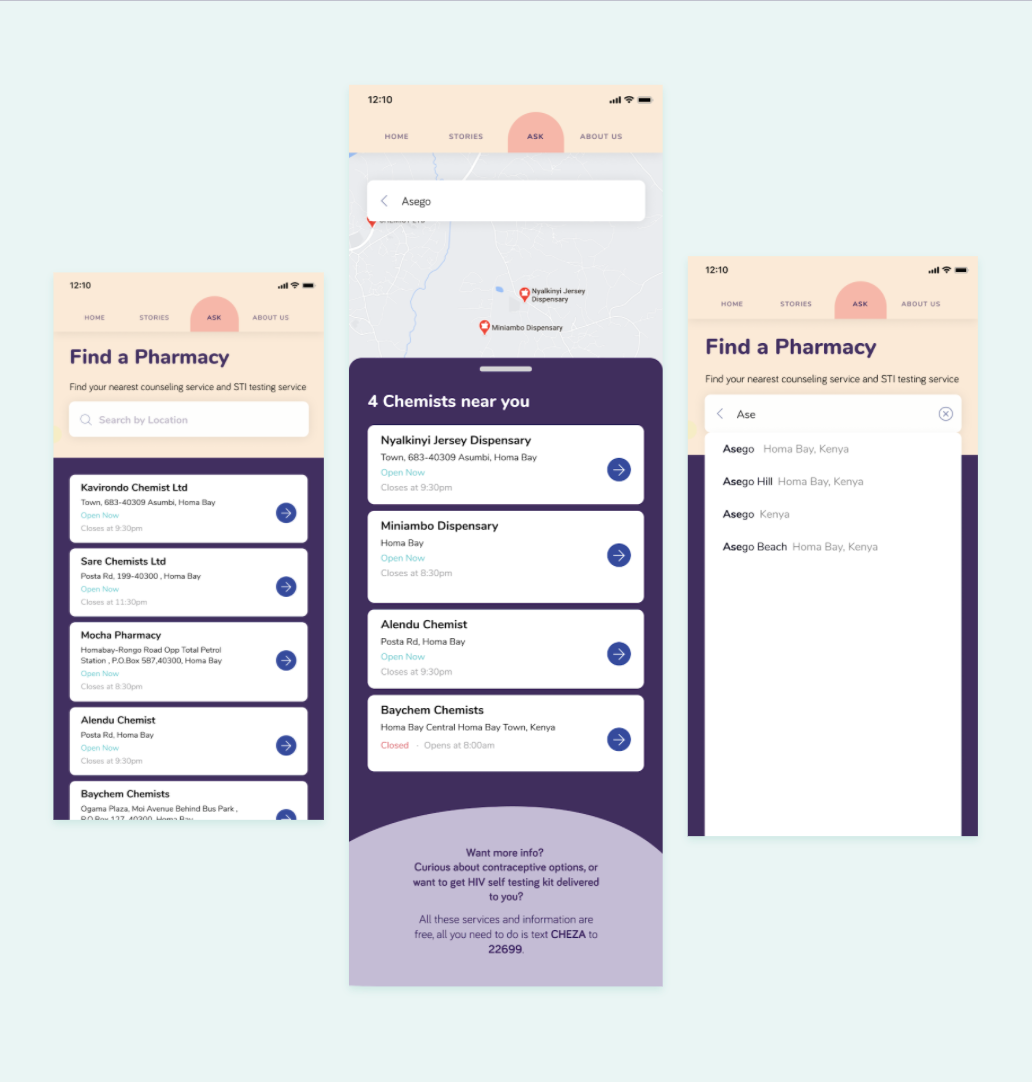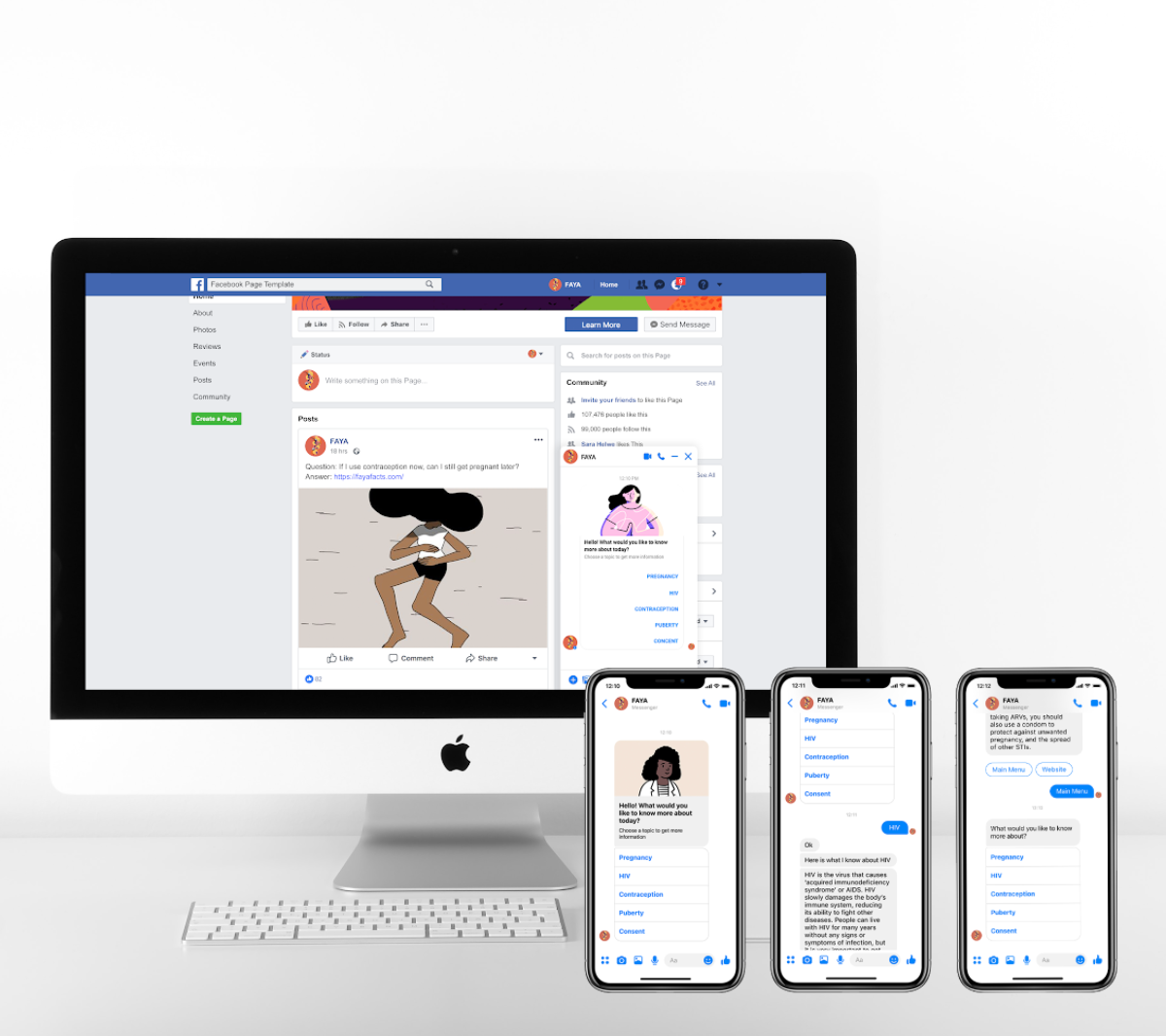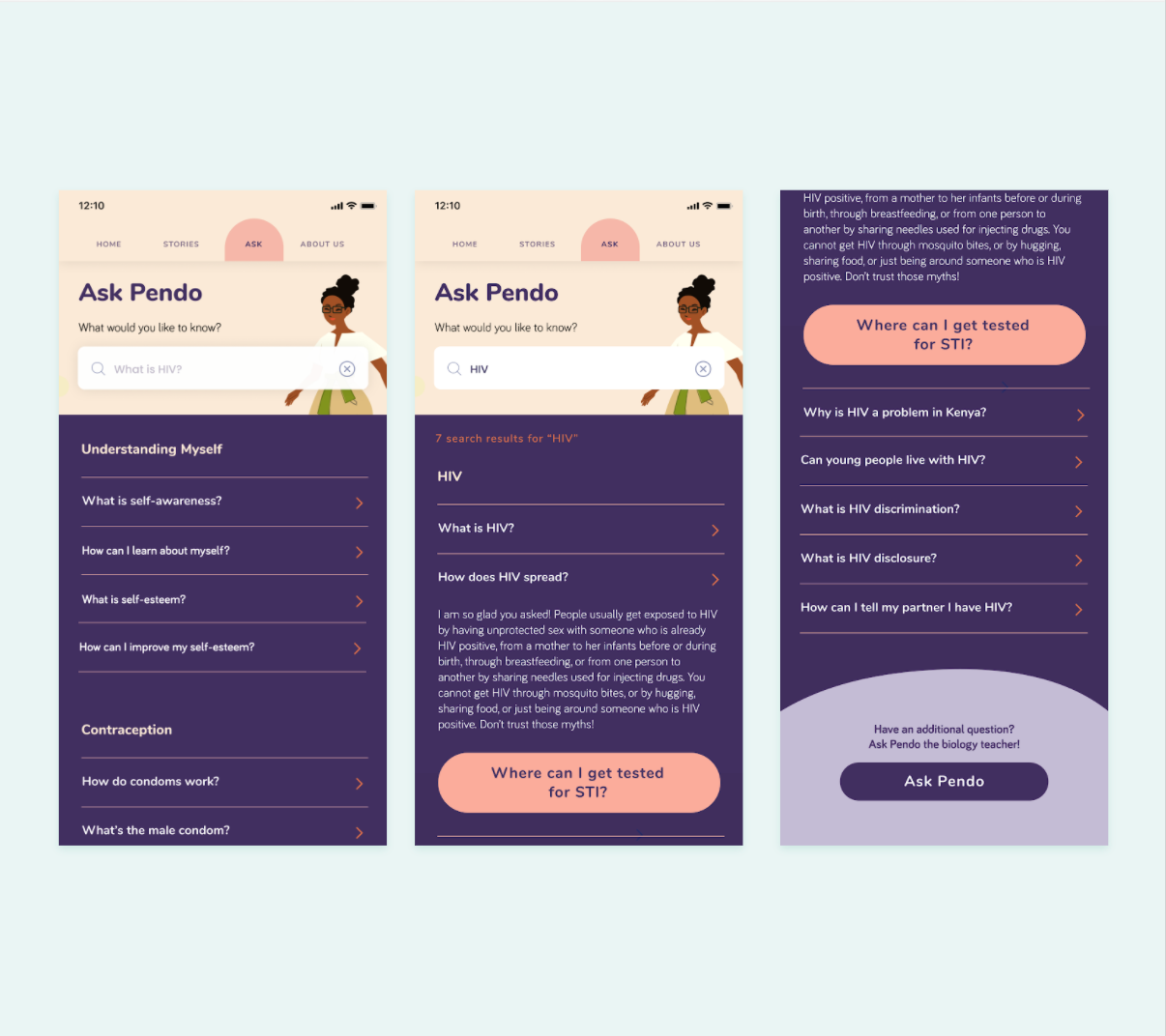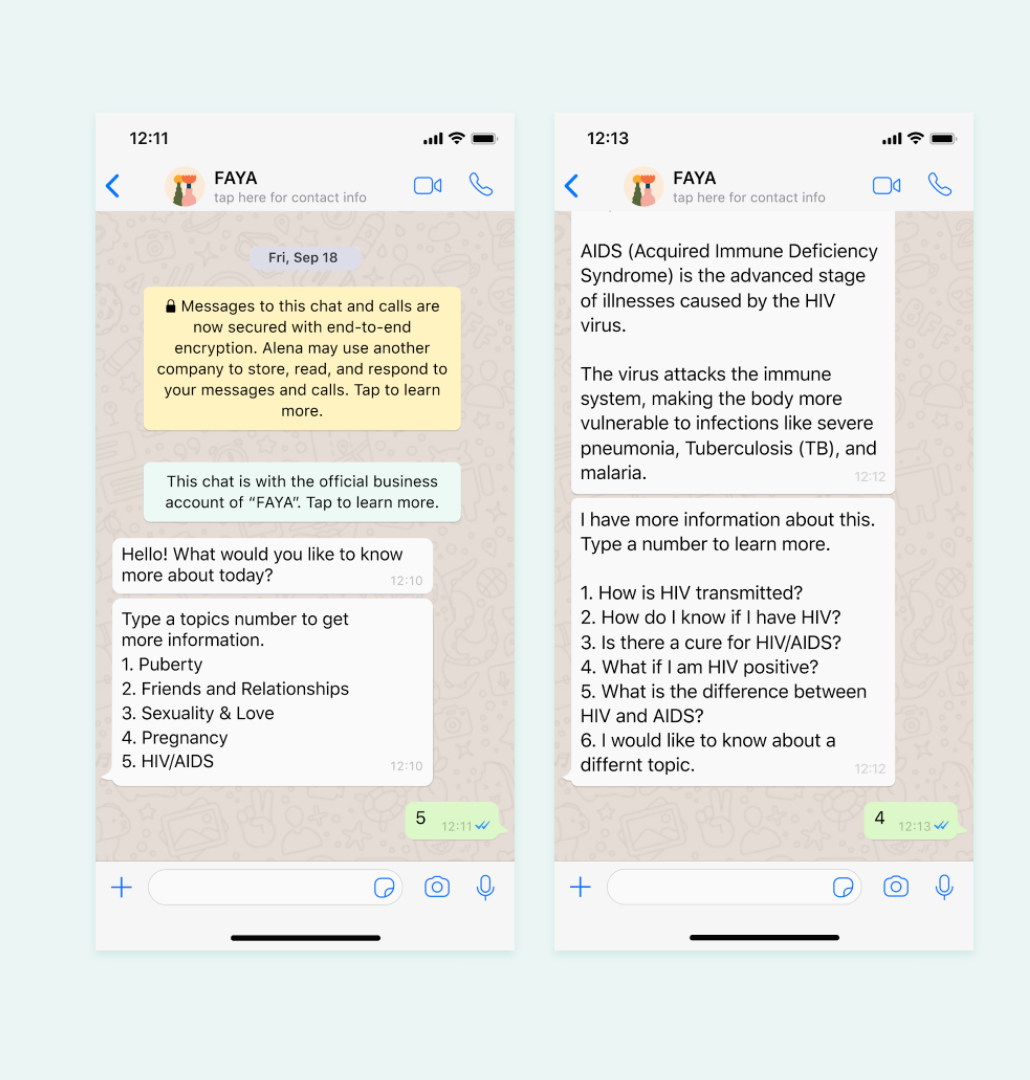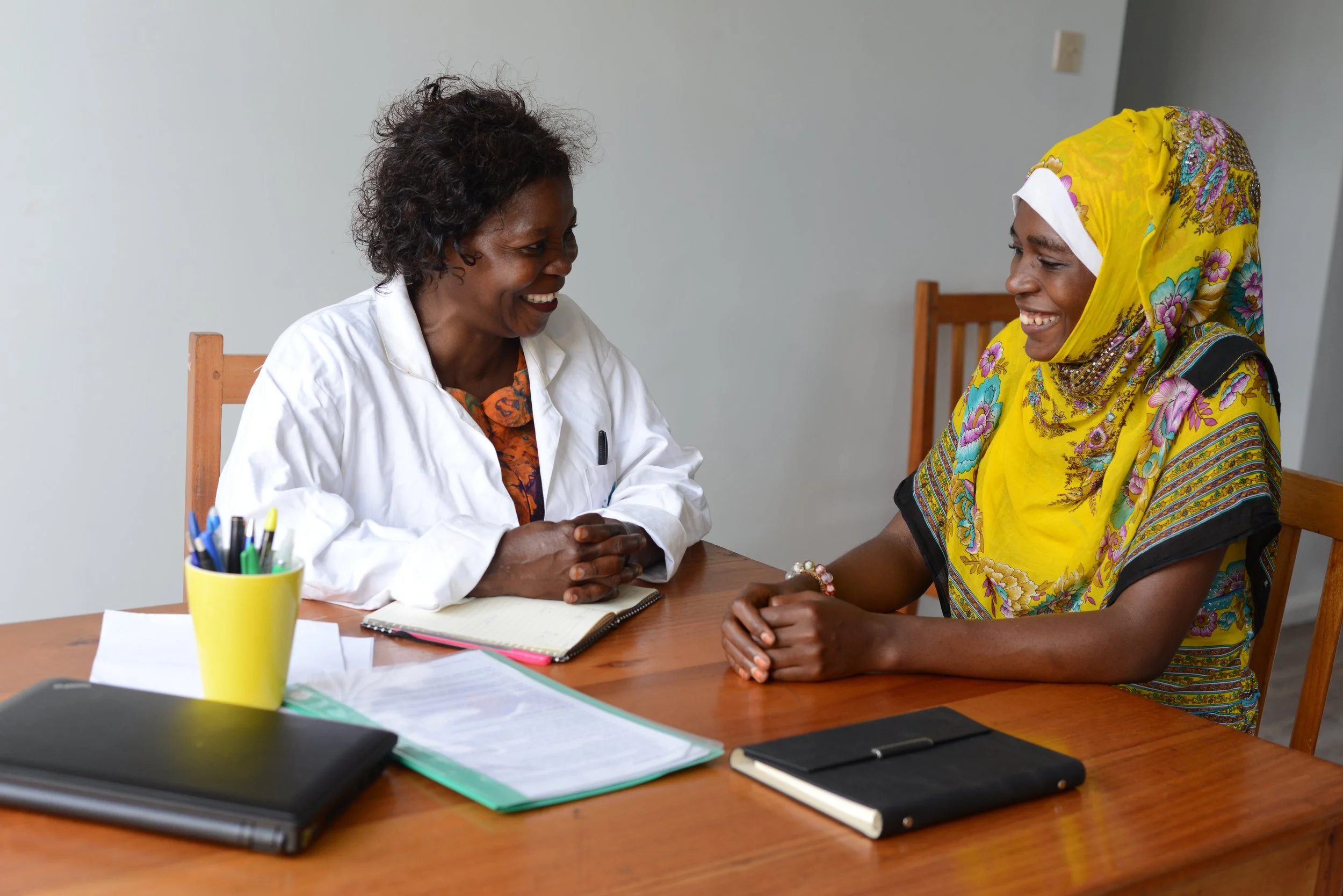AskDoki Chatbot
How might we use technology to make sex education engaging and accessible?
Project:
FAYA
Location:
Kenya
Funders:
CIFF
Partners:
Amref Health Africa in Kenya
Straight Talk Foundation Kenya
Kenya Muslim Youth Development Organisation (KMYDO)
Category:
Sexual & Reproductive Health
Challenge
In Kenya, adolescent sexual and reproductive health and rights (SRHR) remains a pressing concern. Teen pregnancy and motherhood rates in Kenya stand at 18%, which means that about 1 in every 5 adolescent girls has either given birth or is pregnant with her first child. At the same time, more than half (54%) of sexually active adolescent women in Kenya have an unmet need for modern contraception, which means that people reported that they would use modern contraception if they had access to it, but they don’t.
Comprehensive sex education is vital for achieving global SRHR outcomes – from HIV prevention to reducing rates of adolescent pregnancy. Its power to shift gender norms, attitudes, and values is potentially one of the most important investments we can make to support young people to learn about their bodies, relationships and develop healthy, consensual sexual and romantic relationships.
There is empirical evidence that Comprehensive Sexuality Education plays a major role in improving SRHR outcomes. However, there is no evidence indicating the most effective channels for CSE delivery in Kenya. A landscape analysis indicated that there are four main CSE delivery channels; school-based, traditional mass media, peer-to-peer approaches, and digital media.
YLabs is developing a digital sex education solution to meet the needs of young people and test the extent to which this channel is an effective method to deliver CSE.
Innovation
To improve adolescents’ access to high-quality sexuality information and services, YLabs is partnering with Amref to deliver high-impact, youth-approved sexual and reproductive health education through a WhatsApp chatbot. After conducting research and prototyping sessions with young people in Homa Bay and Mombasa, Kenya, we found that youth prefer WhatsApp because it does not use very much data on their phones, and it is more trustworthy than other widely used applications like Facebook. By adapting content to this well-known and accessible digital platform and connecting youth to the most relevant sexual and reproductive health (SRH) service delivery points, we will test how this sex education delivery model can increase knowledge, and change attitudes and behavior surround contraceptive service uptake.
Our multi-disciplinary team of public health specialists and designers are working in Kenya in partnership with young people to ensure that these digital health interventions reflect the latest evidence and standards in Age Appropriate Comprehensive Sexuality Education (AACSE), which are gender-transformative, and rooted in behavior change methodology.
Next Steps
With Amref’s support, our design research team has successfully completed the prototyping phase with youth and guardians in Mombasa and Homa Bay counties. Our team’s upcoming key activities will be to understand and share learnings from this rough prototyping phase, and to create the most desirable, feasible, and scalable digital learning platform for Kenyan adolescents.
Follow YLabs on social media to learn more about this important project!


